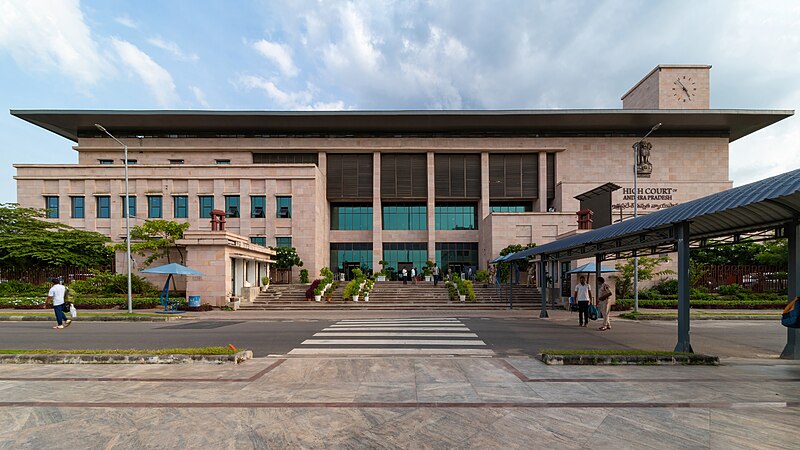The Andhra Pradesh High Court has rejected a public interest lawsuit against Bigg Boss, stating that what seems offensive or inappropriate to some may not be viewed the same way by most people today.

The Andhra Pradesh High Court rejected public interest litigations (PILs) against Bigg Boss, noting that what one person finds obscene may not be viewed the same way by most people today. The Petitioner claimed that the Telugu version of Bigg Boss violated standards of public decency and morality. The Court stated that the Petitioner had not used the legal options available under the Cable Television Networks (Regulation) Act, 1995, and its related rules before coming to court. Chief Justice Dhiraj Singh Thakur and Justice Ravi Cheemalapati remarked that “what might appear to be obscene and indecent to the petitioner may not be so to a majority of citizenry in contemporary times.”
Advocate Gundala Siva Prasada Reddy represented the Petitioner, while Senior Advocates O. Manoher Reddy and C. Raghu defended the Respondents. The Petitioner filed PILs regarding different seasons of Bigg Boss, starting with Bigg Boss 3 in 2019 and another during the 2022 season. They argued that the show’s content was against public morality and inappropriate for young audiences. They requested that the show be stopped unless it received certification from the Central Board of Film Certification (CBFC). The Ministry of Information and Broadcasting and Star India Private Limited (Maa TV) opposed the PILs, stating that the existing laws already protect against unsuitable content and that the Act does not mandate pre-censorship of TV shows.
The High Court referenced the Programme Code in Rule 6 of the Cable Television Networks Rules, 1994, which bans broadcasting content that is offensive to good taste, decency, or morality. The Bench noted that a 2021 update to the Rules created a three-step process for handling complaints. Initially, complaints about program content should be directed to the broadcaster. If not resolved, they can be taken to self-regulatory bodies and, if necessary, to the Central Government via the Inter-Departmental Committee. The Court also mentioned the Constitution Bench’s ruling in Ranjit D. Udeshi v. State of Maharashtra (1965), where the Supreme Court highlighted that the definition of obscenity must align with the freedom of speech and expression protected by the constitution. This requires the Court to carefully consider constitutional issues without straying too far from guaranteed freedoms.
As a result, the Court stated, “We believe the petitioner should have used the process outlined in the 1995 Rules to address his concerns with the appropriate authorities, which he did not do. Simply providing a few photographs and claiming they are obscene is not enough to stop the private respondents from showing their program. The petitioner may seek legal remedies if he chooses.” Therefore, the High Court dismissed the Writ Petition.
Cause Title: K. Jagadishwara Reddy v. Union Of India & Ors.
Appearance:
Petitioner: Advocate Gundala Siva Prasada Reddy
Respondents: Senior Advocates O. Manoher Reddy and C. Raghu; Advocate Venna Hemanth Kumar








